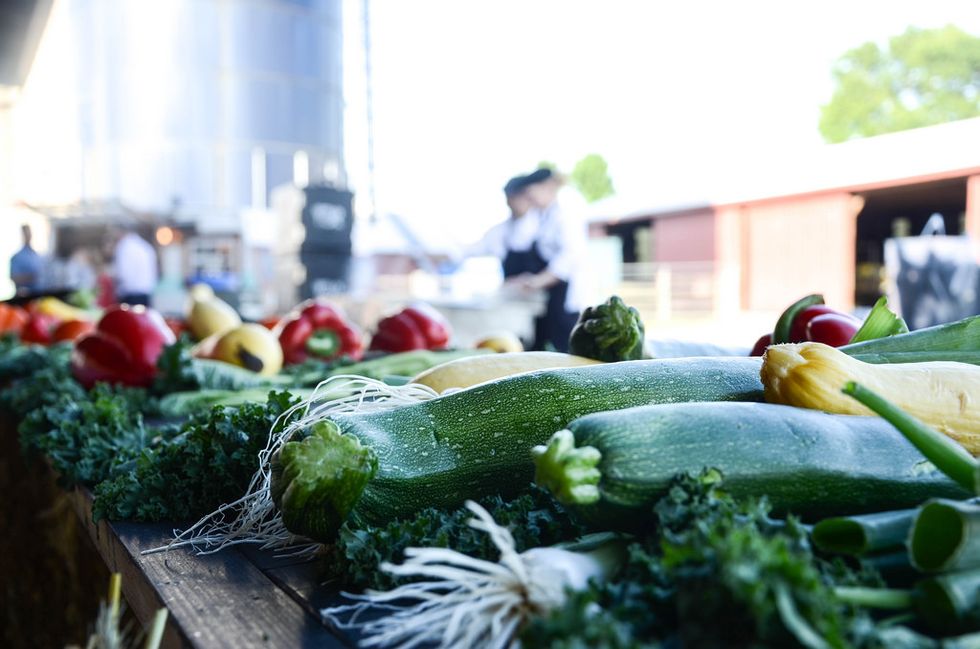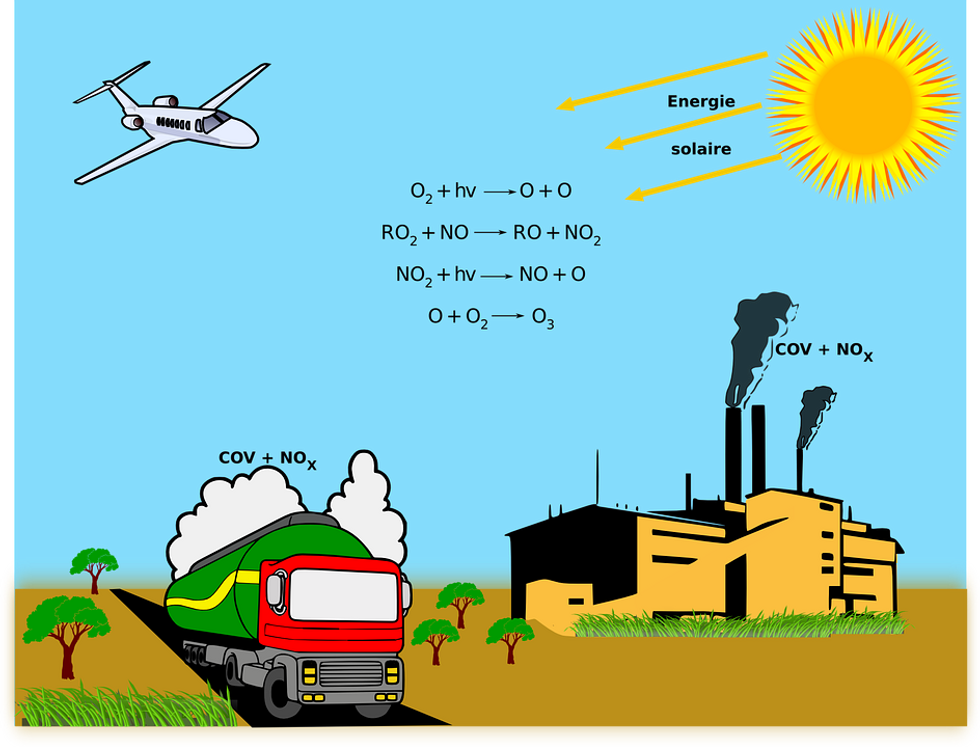When you walk through the produce section at the grocery store you are guaranteed a colorful array of fruits and veggies. The origin of product ranges from hundreds of miles away to thousands of miles across oceans and continents. Our current food system relies on importing and exporting around the globe. This system allows us to put food on our tables that are locally out of season. Carbon dioxide emissions from transporting these goods heavily pollute the environment. I blame the astronomically high demand for an unnecessary variety of food options to play a large role in anthropocentric climate change.
Where do foods come from when they aren't in season?
A huge contributor to global warming is the transportation associated with distributing food around the globe. During March in Washington State, the produce in season is brussels sprouts, celery root, garlic scapes, horseradish, lamb's quarter, leeks, mushrooms, nettles, parsnips, potatoes, purslane, rapini, sorrel, sprouts sunchokes, and turnips. However, when you look around the supermarket you'll find products such as avocados, apples, oranges, pears, strawberries, broccoli, cabbage, carrots, peppers, and many others that are transported here from far away. According to the USDA, Canada and Mexico are the largest suppliers of United States agriculture products, followed by the European Union.
Imported goods the United States receive are products Western society has placed a high value upon; confusing luxury with necessity. The USDA reports imported goods such as coffee/cocoa/spices and fish/shellfish are among those luxury items Americans have increased their demand for. Which isn't to say people should never drink coffee or eat the occasional chocolate. It's time we reconsider our consumption levels and consider how our indulgences are impacting the environment we live in today, and how it will affect the environment of the future.
Eat locally and seasonally, your taste buds will thank you.
On an individual level, we can limit our impact on the environment by eating locally and seasonally. Eating food that's in season requires you to purchase locally grown foods. Supporting local farms keeps your money in the local economy and significantly cuts down on transportation. This change in behavior would help minimize our contribution to anthropocentric climate change. Don't worry, there aren't only environmental benefits to eating seasonally. Our seasonal options during the colder months will seem to limit initially. On the bright side, seasonal eating allows you to discover new foods which are fresher and tastier than anything shipped from around the world. Imagine biting into a strawberry or apple a few days after harvest versus a few weeks; the proof is in the flavor!
A solution of mutual accommodation.
Our current food system is entirely unsustainable; built on the increasing demand for luxury goods from around the globe. It didn't use to be like this. Societies survived for thousands of years on locally and seasonally sourced resources. Of course, the world's population is much larger today than it was a few hundred years ago, it's not unrealistic to strive to eat seasonally to help limit our environmental footprint. On a larger scale, innovative policy change is long overdue. Pollution is an American public health issue as well as a global health issue. This issue is full of complexity which requires a certain level of mutual accommodation. However, it is unrealistic to expect individuals to eat 100% seasonally all the time. To achieve the same goal of minimizing anthropocentric climate change and to improve public health, through individual and governmental cooperation we can meet in the middle to find an accommodating solution for everyone.
- 5 Ways To Help Save The Planet ›
- 9 Small Ways To Be Greener At College ›
- The Climate Change Crisis ›
- 7 Perks Of Living In A Big City ›
- I'm Dreaming of a White Christmas: But Is It Global Warming's Fault? ›
- Giving Up Meat WON'T Save The Planet, Buying Local Will ›
- My Hometown Has Toxic Air Pollution ›
- How much air pollution comes from cars? | HowStuffWorks ›
- NASA GISS: Science Briefs: Transportation Pollution and Global ... ›
- Environmental impact of transport - Wikipedia ›
- Cars, Trucks, Buses and Air Pollution | Union of Concerned Scientists ›
- Transportation - Pollution Probe ›
- Vehicles, Air Pollution, and Human Health | Union of Concerned ... ›
- Carbon Pollution from Transportation | Transportation, Air Pollution ... ›




 Photo by
Photo by  Photo by
Photo by  Photo by
Photo by 
















